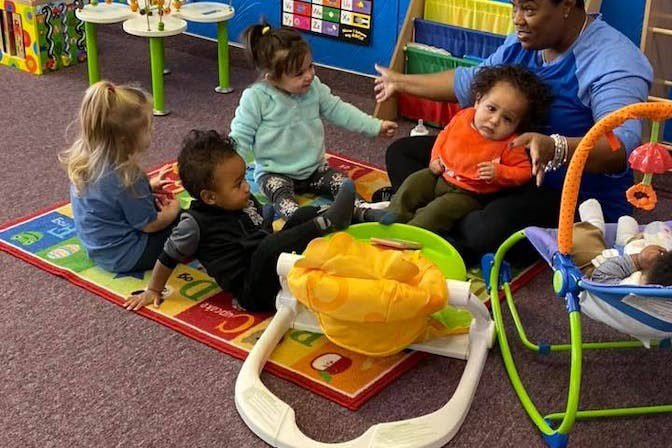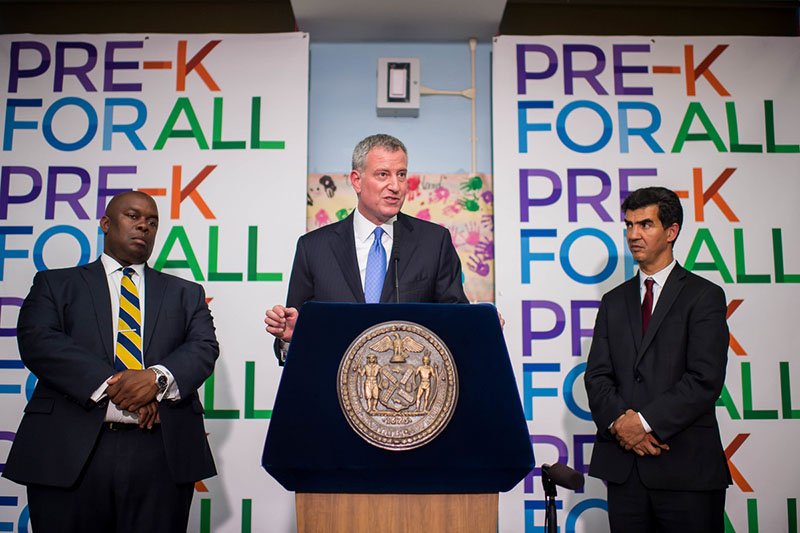All Work
Early Childhood Education
Does Pre-K Work? The Research on Ten Early Childhood Programs—and What it Tells Us
Widely cited early childhood programs vary greatly in both design and results. The research on these programs shows neither that “pre-K works” not that it doesn’t; rather, it shows that some early childhood programs yield particular outcomes, sometimes, for some children.
The Narrow Focus of Pre-K Research
A couple of weeks ago, RAND released a report on public pre-K, announcing that high-quality pre-K "works." But the research showing pre-K's impacts is weaker than commonly understood, and the impacts shown are much less important than reported.
Let’s Get Inside the Black Box of Pre-K
We know that pre-K can work, but not enough about what makes it work and how.
Does Pre-K Work? A Look at the Research
Is the current research base sufficient to guide new and expanding early childhood initiatives? Katharine Stevens hosts a panel of four prominent scholars to discuss the state of early childhood research. While some argue that current knowledge provides adequate support for growing pre-K programs, others suggest that stronger evidence is needed.
There’s Nothing Magical About Pre-K
Treating pre-kindergarten like a silver bullet isn’t helping the disadvantaged kids who need it most.
Pay for Preschool Success
Recent critiques of Utah’s pioneering Pay for Success project in fact underscore a key strength of the Pay for Success approach: bringing rigor and transparency to public sector spending, which usually has neither.
Preschool for All is No Panacea, California
Instead of launching a costly and unproven program for 4-year-olds, California should invest in helping vulnerable, young children in the home and in child care.
Pre-K Isn’t Enough
While a year of pre-K can be helpful for many children, too often focus gets diverted from improving early learning for disadvantaged young children to promoting universal pre-K for all four-year-olds.
Pay for Success Doesn’t Mean Wall Street Is Recruiting in Pre-K
The effort Goldman Sachs is leading is not to recruit future stockbrokers in preschool. The effort they’re leading is to make preschool work well enough that solid results for children have staying power down the line.
Too Little, Too Late
Minnesota’s fascinating preschool battle drags on, highlighting crucial questions for the expansion of early education across the country.
The Next Front in the Preschool Fight
Minnesota’s unusual debate highlights three crucial questions that the growing early care and education sector is increasingly going to face as more initiatives get off the ground across the country.
The Myth of Universal Pre-K
Big scale-ups of “pre-K for all” are much more useful to politicians and the middle class than to the disadvantaged children most in need of help.
A Caution to Early Educators
It’s important to remember that getting money in the budget isn’t enough to realize the promise of early education. How early learning programs are designed and carried out is as important as whether they’re done at all.
Here Come the Child-Care Cops
Research shows that good preschool can be critical to young children’s development and is insufficiently accessible to poor and working-class families. But new federal grants are paying states to institutionalize a misguided conception of quality, repeating the same mistakes that the education establishment has been making in K-12 for decades.
Bigger Isn’t Better for New York City Pre-K
While adding tens of thousands of pre-K slots in a matter of months makes for good headlines, it does not make for good pre-K.
What the Midterm Elections Mean for Pre-K
For pre-K, the outcomes of the governors’ races will make much more of a difference than who controls the US Senate.

















